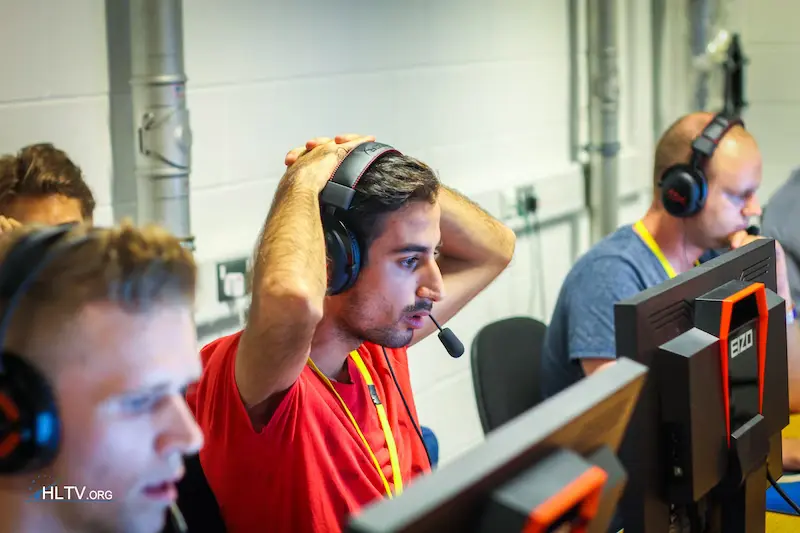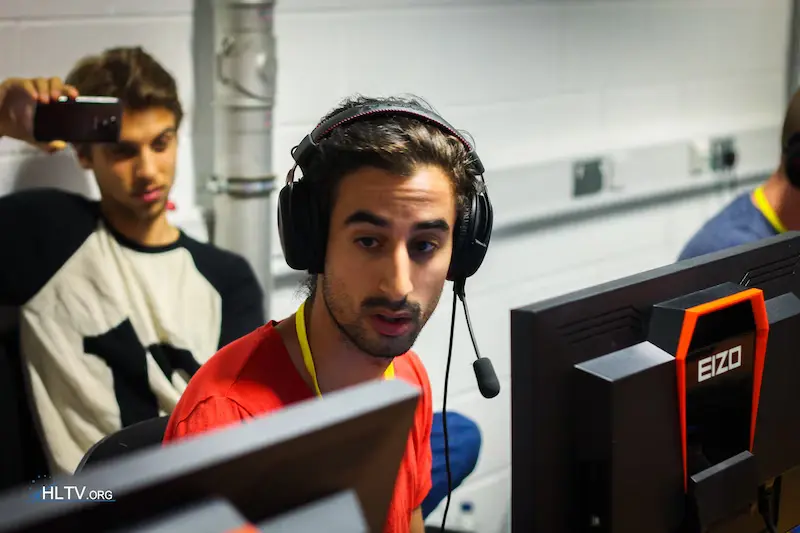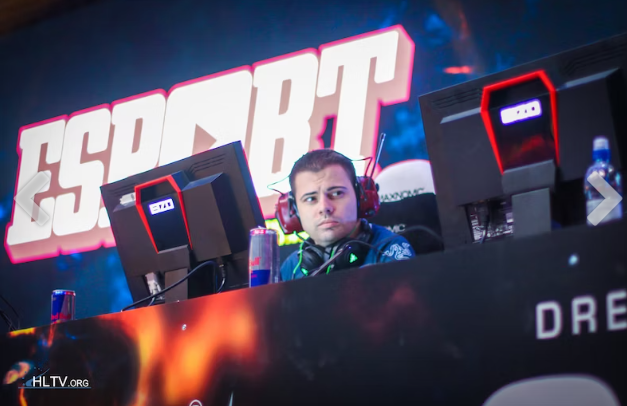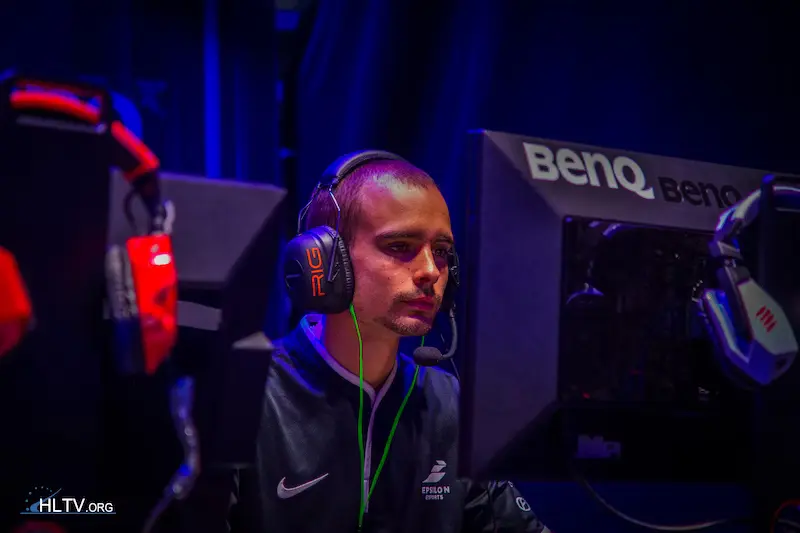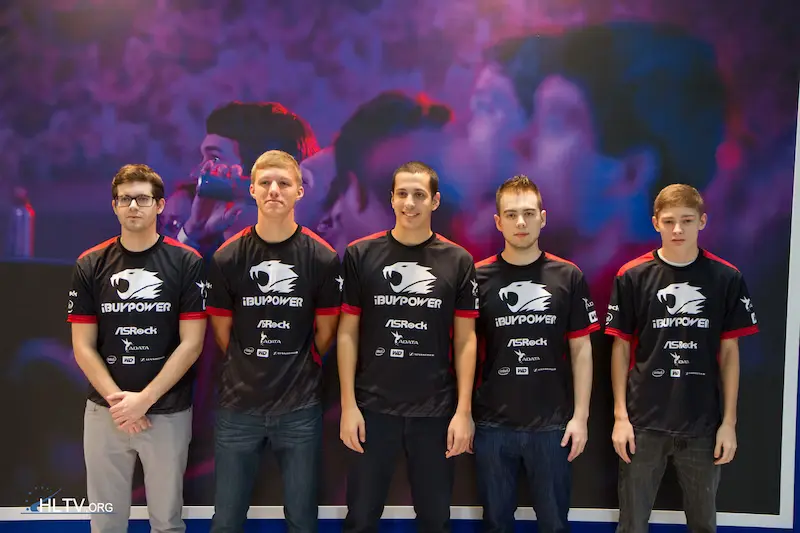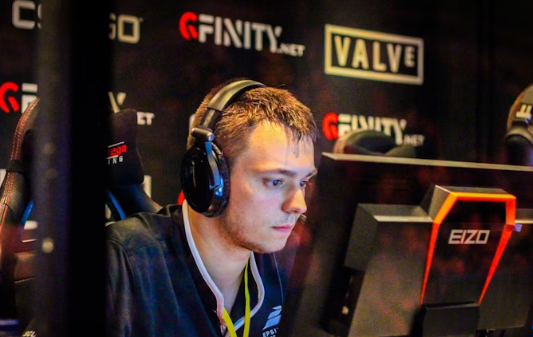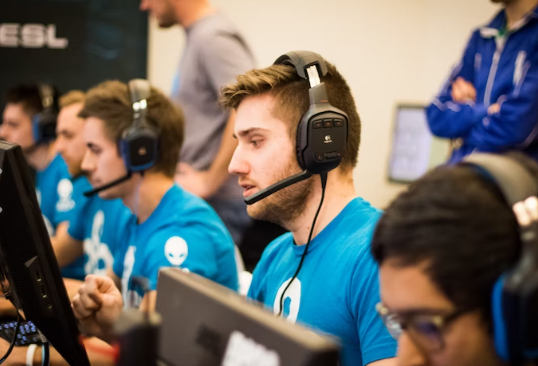The Dark Side of Counter-Strike Pro Scene: Cheaters, Match Fixers & Drug Abusers
Integrity and fair play are fundamental factors for the growth and reputation of any sport, and it is the same for esports. Despite that, the Counter-Strike (CS:GO/ CS2) community witnessed many professional players, coaches, and teams get into scandals because they got caught cheating.
In this article, we will go over the biggest Counter-Strike (CS:GO/ CS2) cheating scandals that happened in the past, their consequences, and what steps have been taken to prevent these cases in the future.
In article you will find:
Cheating in Counter-Strike (CS:GO/ CS2)
Counter-Strike (CS:GO/ CS2) cheaters are unfair players who use third-party software to gain a huge in-game advantage against other players. For example, aimbot cheats let a player shoot with inhuman preciseness and reaction speed, and wallhack cheats grant the ability to see the enemies through the walls and other solid objects.
With advanced anti-cheat systems like VAC, FACEIT Anti-Cheat, and ESEA Anti-Cheat, regular players still find ways to pass them and ruin everyone’s gaming experience by cheating. Although these anti-cheat systems evolve daily, new cheating software gets released daily as well.

While it is not uncommon to encounter a cheater in regular Counter-Strike (CS:GO/ CS2) matchmaking, it is quite unsettling to find out that a few professional players used cheats to win their matches. After all, not only is cheating prohibited on every level, but it also undermines the integrity of the competition and ruins the trust and reputation of the scene.
Over the years, more than fifty professional players received VAC bans for cheating, and thirty-six coaches were banned for bug abuse. There are also a lot of players who were suspended for match-fixing and betting offenses.
Let’s take a closer look at the most notorious cases of Counter-Strike (CS:GO/ CS2) pro players cheating, match-fixing, and bug abuse.
Pro Players Who Were Accused Of Cheating
With so much prize money, fame, and recognition at stake, no wonder some professional Counter-Strike (CS:GO/ CS2) players dared to use cheats to gain an unfair advantage at tournaments, even at LANs.
Some of the most scandalous cases involving Counter-Strike (CS:GO/ CS2) professionals caught cheating are those with Forsaken and emilio. We will review their cases, and find out what happened with KQLY and Sf.
Forsaken: word.exe
Nikhil ‘forsaken’ Kumawat used to be a professional Counter-Strike (CS:GO/ CS2) player for OpTic India, a project the purpose of which was to help the Indian Counter-Strike (CS:GO/ CS2) scene grow and evolve. In 2018, this Counter-Strike (CS:GO/ CS2) pro was caught cheating. It happened during an official match against Vietnamese Club Revolution in the eXTREMESLAND tournament with a $100,000 prize pool.
The B5 anti-cheat solution used at the event has flagged “suspicious activity” on the server, and it made a tournament admin proceed with a further investigation. They paused the match and went to check forsaken’s PC.
After a brief talk with the admin, forsaken immediately shut down both the game and the third-party software running in the background. Then, the admin checked his PC and found executable files presumably used for cheating, “word.exe”, “word.bak”, and “word.exe.log”.
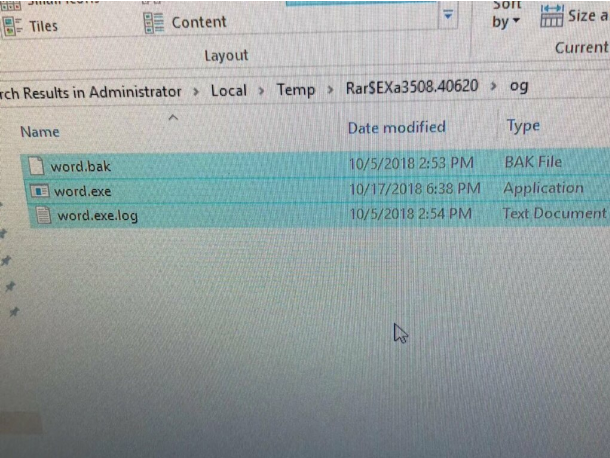
As a result, the OpTic India team was disqualified from the event. Further investigation confirmed that his teammates did not use any cheats. Forsaken has been kicked from the team.
“The player caught with hacks has been released from the organization, we do not tolerate anything like this. We want to apologize to all the other teams and organizations involved. It is unfair for everyone involved.
We also want to apologize to our country and to the fans who have supported us. This will be a big setback for the country, and it is really unfortunate that one selfish person is capable of causing this.” – OpTic’s GIDD to HLTV.org.
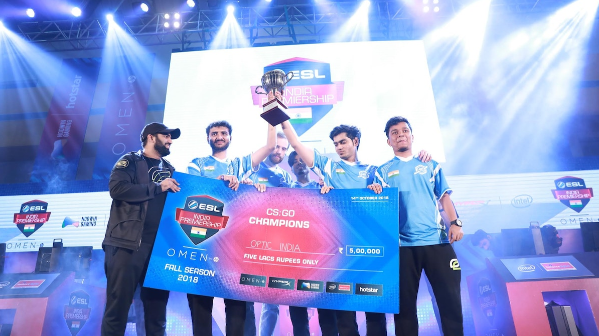
In the end, this cheating scandal became a reason for the OpTic organization to part ways with the Indian team, which became a massive setback for the Indian professional Counter-Strike (CS:GO/ CS2) scene.
Joel “emilio” Mako
The only thing more embarrassing than cheating is getting caught cheating in 4K. Joel “emilio” Mako, a Swedish Counter-Strike (CS:GO/ CS2) player, got VAC banned in the middle of an official match.
The BO3 match between Team_Property and Hellraisers was held within Fragbite Masters Season 3. On round 12 of de_dust2, emilio got disconnected from the server. In the chat, a server notice appeared: “Console: Player emilioOOo left the game: VAC banned from secure server”.
The rest of the players and two casters observing the match were unsure how to react to emilio getting VAC banned. At first, casters decided not to speculate and wait for more information.
The organizers immediately suspended Team Property until further notice as they began an investigation of the matter. At first, emilio claimed he was innocent, and his friend used cheats on one of the pro player’s alternate accounts.
“I am leaving this in Valve’s hands. I cannot prove my innocence, but I know they can”. – emilio said to HLTV.
Fragbite Masters gave Team Property 48 hours to provide evidence that could prove the innocence of the banned player, but no evidence was found. Then, the team was disqualified, and emilio was banned from all future Fragbite Masters events.
Right after, Team Property said goodbye to emilio and started looking for a player to replace him on the roster. However, in two months, the organization announced that it had dismissed the Counter-Strike (CS:GO/ CS2) roster.
At the beginning of 2015, emilio admitted to using Counter-Strike (CS:GO/ CS2) cheats while playing a matchmaking game.
“Me and my IRL friends were playing matchmaking together with X-ray cheat. For the moment, it was fun until the consequences blew back in my face. Even though I never cheated in an official match, I realize it was wrong and I regret it every day” – Mako said to Aftonbladet.
In his interview to Aftonbladet, emilio also mentioned that he wanted to compete again. The player is permanently banned from all Valve-sponsored events.
KQLY (Titan) & Sf (Epsilon)
Hovik “KQLY” Tovmassian, a French pro player who was a part of Titan at the time, got VAC banned on November 21, 2014. He got hammered with a VAC banner on their Steam Profiles, leading to his team being disqualified from the upcoming Major event, DreamHack Winter.
On his Facebook page, Tovmassian apologized for what happened and explained that he did try out Counter-Strike (CS:GO/ CS2) cheats out of curiosity while playing on public servers and in matchmaking games.
“As you saw yesterday, I was banned by VAC, and unfortunately, it was justified.
I wanted to say that I’m really sorry to all the people who supported me, I am aware that with this bullsh*t, my career is now over, and my team is in a very bad position. They did not deserve that.
At the end of August, I was contacted by a supex0 programmer, who built a strong case and told me that a lot of pros were using the program.
Instantly, I became curious. He gave me access to the program for seven days. Like an idiot, I fell into temptation, which was too great. I wanted to see what it looked like on public servers and matchmaking.
I did not use it after that. I was going to join Titan, and I did not need to take unnecessary risks while I had all that I needed: a top team with a solid structure behind it. My curiosity failed me, and now my CS career is over after 12 years.
I lost everything, and I do not expect any compassion, I made a mistake, and I will pay for it. Unfortunately, everything ends here. Once again, I’m really sorry to have disappointed everyone.” – wrote KQLY on his Facebook page.
In 2017, ESL changed its regulations regarding VAC-banned players and allowed them to compete in its standalone competitions if the suspension occurred more than two years ago. In October of the same year, KQLY joined French Counter-Strike (CS:GO/ CS2) team Vexed.
The roster had no major achievement. KQLY retired as a professional Counter-Strike (CS:GO/ CS2) player in 2019 and moved to Los Angeles to operate a luxury car rental business.
Sf (Epsilon)
Gordon “Sf” Giry is a retired professional Counter-Strike (CS:GO/ CS2) players who received a permanent VAC ban while performing for Epsilon Esports. Throughout his career, he also played for LDLC.com and Clan-Mystik.
Giry got VAC banned on the same day as KQLY in November, 2014. This ban led to his team, Epsilon Esports, getting suspended from the DreamHack Winter 2014 $250,000 tournament, which was supposed to kick off in a week.
According to an Epsilon statement, Sf confessed to hacking while playing in matchmaking in a conversation with the team’s executives, which culminated in the player’s immediate departure from the roster.
Coach Bug
Long story short, several coaches of professional Counter-Strike (CS:GO/ CS2) teams were found guilty of abusing a game-breaking exploit that let them observe enemy positions on a map during official matches, giving them an enormous and unfair competitive advantage.
The bug allowed coaches to fix their in-game cameras in any position on the map and provide their teams with additional information about the movements and strategies of the opponents.
Mariusz “Loord” Cybulski first went public about the spectator bug at the end of August, 2020.
It caught the attention of the eSports Integrity Commission which launched a deep investigation on September 4. The findings led to ESIC suspending thirty-seven coaches at the end of the month. Periods of the punishments ranged from 3.75 to 36 months based on how often coaches abused the bug.
Hard Legion’s zoneR received the harshest punishment with a three-year suspension because he used the exploit during sixteen maps in 2020.
Match Fixing Scandals
Match-fixing means manipulating a match’s outcome to profit from betting on the desired result. Rigged matches are prohibited, and cases of match-fixing ruin the integrity of the competitive CS:GO.
Match-fixing may involve players themselves betting on their loss using alternate accounts, team management, or other individuals doing it for them. There have been a few match-fixing scandals the Counter-Strike (CS:GO/ CS2) community witnessed in the past, and the biggest ones involved iBUYPOWER, NetcodeGuides.com, and Epsilon Esports.
The North American Match-Fixing Scandal
In 2014, the match between iBUYPOWER and NetcodeGuides.com was held within the CEVO Professional League Season 5. Although iBUYPOWER was the absolute favorite, they suffered a tremendous loss at 16:4 on de_cache. You can watch the whole game here.
Counter-Strike (CS:GO/ CS2) scene is full of surprises, and it is not uncommon for pro players to “win the unwinnable, lose the unlosable”. However, this particular match drew the attention of the community. Right after the match, speculations began if the match had been fixed.
Richard Lewis, an esports journalist, conducted an investigation and revealed that certain iBUYPOWER players had plotted to intentionally lose the match to a weaker team. They worked with accomplices to place bets on the outcome of the match using alt accounts on third-party skin gambling websites, taking advantage of the contrasting odds.
A number of messages and other evidence gathered and published by Lewis proved that the participants threw the game on purpose so they could make money from the bets. You can check out all screenshots of the leaked messages here.
After investigating the matter, Valve suspended seven individuals from competing and participating in future Valve-hosted tournaments due to their involvement in the match-fixing scandal. Here is the list of banned people:
- Duc “cud” Pham
- Derek “dboorN” Boorn
- Casey “caseyfoster” Foster
- Sam “DaZeD” Marine
- Braxton “swag” Pierce
- Keven “AZK” Larivière
- Joshua “steel” Nissan
The bans were initially indefinite. However, some players had their bans removed, while others are still forbidden to take part in Valve-sponsored tournaments.
Epsilon Esports
Epsilon Esports underwent roster changes and released Robin “GMX” Stahmer at the end of January, 2015. Stahmer has struggled to perform well and was rumored to have interpersonal conflicts with teammates. This decision was also based on the team’s poor results after they parted ways with Gordon “Sf” Giry and Christophe “SIXER” Xia.
Only two days after GMX was kicked from the team, the player revealed that his ex-teammates intentionally threw a match against OverGaming within ESEA Invite Season 17 to gain profit from his friends betting their Counter-Strike (CS:GO/ CS2) skins on a third-party skin gambling website.
Epsilon management claimed they were unaware of their Counter-Strike (CS:GO/ CS2) roster’s wrongdoing and were as shocked as the rest of the community. While Valve and ESEA held their ongoing investigations, Epsilon Esports suspended the whole team, which at the time consisted of Kevin “Uzzziii” Vernel, Adil “ScreaM” Benrlitom, and Joey “fxy0” Schlosser.
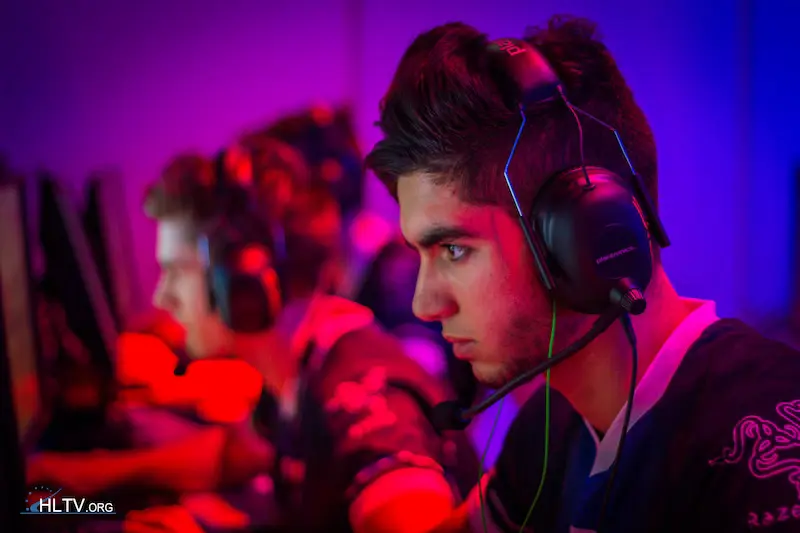
As a result, Valve banned all players except ScreaM, who was deemed not guilty of match-fixing. Apart from Epsilon Esports, ex-ESC Gaming and the former ALSEN team were banned as well, with four French and ten Polish players suspended.
Doping Problem in eSports
Cheating in Counter-Strike (CS:GO/ CS2) goes beyond players using third-party software to gain an unfair advantage. Some players use performance-enhancing drugs like Adderall to increase focus while gaming, and cases of doping are nothing new to sports and eSports.
In 2015, an anonymous pro player, who Eurogamer interviewed, stated that cases of using Adderall were “very widespread” within the NA eSports scene. That same year, a Cloud9 player SEMPHIS openly admitted that he and his teammates used the psychostimulant drug while competing in a Major tournament.
In his interview to Launders, the Counter-Strike (CS:GO/ CS2) pro player SEMPHIS openly admitted that he and his teammates from Cloud9 were on Adderall while they played at the ESL One 2015, a Major event held in Katowice. Despite that, they could not make it past the Group Stage.
“The ESL comms were kinda funny, in my opinion. I don’t even care. We were all on Adderall. I don’t even give a f*ck. It was pretty obvious, like, if you listen to the comms. People can hate it or whatever.” – SEMPHIS.
Then, Launders asked if everyone else did take Adderall at ESEA LAN, and SEMPHIS admitted that too.
Launders: “Everyone does Adderall at ESEA LAN, right?”
SEMPHIS: “Yeah.”
Govindasamy: “Just throwing that out there for the fans, that’s how you get good.”
SEMPHIS: “And you can hear it in the comms, right? That’s what was so funny to me. Like “shit, comms so hectic.” So yeah, that might clear up some of the questions of why it was like that.”
Adderall is used to treat ADHD (attention deficit hyperactivity disorder). While it helps with concentrating and focusing, wards off fatigue, and boosts reaction time, it is also harmful and addictive.
Although most eSports event organizers banned using performance-enhancing drugs, none actually banned Adderall explicitly for quite a long time, up until 2016.
In 2016, the Esports Integrity Commission (ESIC) updated its Anti-Doping Code and released The List of Prohibited Substances with Adderall included. Substances that got into the list are now considered forbidden unless a player has a medical receipt. BLAST, ESL, and other organizers now refer to ESIC in their rulebooks.
Wrapping Up!
Integrity and fair play are keys to a prosperous esports scene. It is a must to abide by the rules and play on an even field for everyone gaming, and pro players especially. We do hope that although the Counter-Strike (CS:GO/ CS2) industry has witnessed many cheating, match-fixing, and bug abuse scandals previously, non of them will happen again.

Play fair and explore our blog for more articles about Counter-Strike (CS:GO/ CS2) skins and other cosmetics, in-depth game guides, and esports news. Stay tuned!



